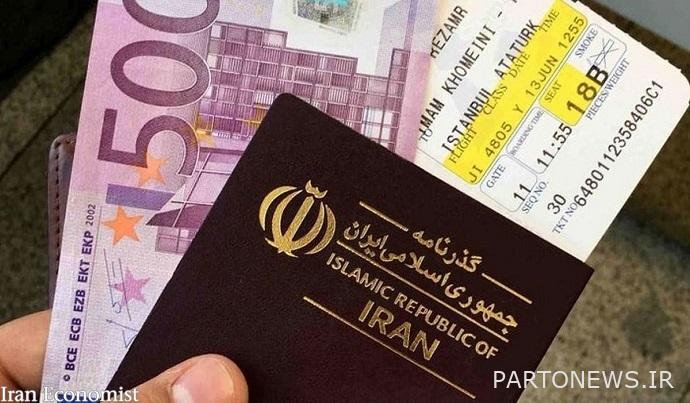Travel currency brokerage will be dismantled by central bank plans

The foreign exchange market has always been a breeding ground for all kinds of violations and abuses due to the existence of multiple prices (free, half, preferential dollars).
Among the abuses that occur in this market, we can mention obtaining quota currency and selling it at a free rate.
In the turbulent days of the foreign exchange market, when prices fluctuated sharply, if you passed in front of the exchange offices, you would probably notice the presence of a large number of buyers in front of some exchange offices who came to the exchange offices to buy a quota of 2,000 euros.
Each person can buy 2,000 euros once a year from authorized exchange offices of the Central Bank. Applicants can submit their desired currencies at the bank exchange rate by presenting a national card.
There were two groups of people queuing in front of bank exchange offices to buy this quota; The first group were people who bought in the hope of making more profit and investing. These people were influenced by the false atmosphere of the foreign exchange market and bought and sold foreign currency in this way to make a profit.
The second group were people who not only did not know about the foreign exchange market but also did not have the necessary money to buy, but by renting their national card for a small amount of 300 to 500 thousand tomans, they came to brokers to buy.
In recent months, the central bank has changed the way 25 currencies are sold and travel expenses are used to eliminate queues in front of bank exchanges and hot silver brokers, so that in addition to identifying applicants, a ticket and exit card must also be provided.
The authentication policy of the real applicants worked and we no longer saw long queues in front of exchange offices. However, the central bank made changes in order to regulate the sale of foreign exchange and prevent violations in the sale of travel currency.
Accordingly, the amount of travel currency sales by exchange offices is set at 2,000 euros for countries that require a visa and equivalent to 300 euros for countries without a visa. Travel currency headings are divided into three categories: travel vouchers with a visa of 2,000 euros, air travel without a visa 300 euros and land, rail and sea travel 300 euros.
Today, news of a change in travel currency has been published only with the currency of the destination country, “Saeed Mojtahedi,” the secretary of the Money Changers Association, told IRNA.
He added: “Therefore, travel currency is provided with tickets and passports, and only 300 euros will be allocated for trips that do not require a visa.”
Regarding the change of travel currency in accordance with the currencies of the destination countries, the secretary of the country’s money changers’ association said: “Even now, people can choose to receive dollars and euros or the national currency of the destination country.”
He added: “Exchange offices always provide currency according to the needs of their customers and have various currencies and enter the rates of different currencies in their sales board.”
Studies show that the central bank’s actions to combat violations and regulate the sale of travel currency can be fruitful, but experts say that the service currency policy can be changed to much better conditions. In this way, patients can refer to the Board of Trustees of Foreign Exchange Savings in the treatment of patients to provide the currency they need and provide the currency they need.
Some experts also believe that the allocation of foreign currency for foreign travel should be eliminated and applicants should get money from exchange offices at a free rate and only patients who are subject to foreign exchange should have a lower quota.
IRNA

